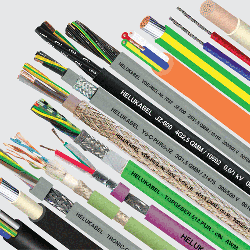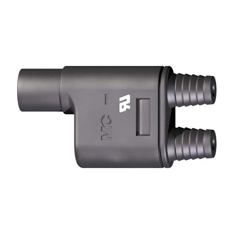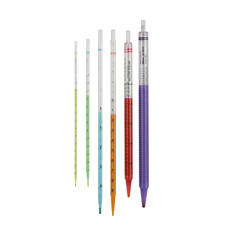
BeNano 90 Zeta for Industrial Science Applications
Nanoparticle Size and Zeta Potential Analyser
The BeNano 90 Zeta is the latest generation of nanoparticle size and zeta potential analyzer designed by Bettersize Instruments Ltd. Dynamic light scattering (DLS), electrophoretic light scattering (ELS) and static light scattering (SLS) are integrated in the system to provide accurate measurements on particle size, zeta potential and molecular weight. The BeNano 90 Zeta is widely applied in academic and manufacturing processes of various fields including chemistry, chemical engineering, biology, pharmaceuticals, food, materials, et cetera.
-
Rapid Measurement Capability: Faster operations and editable results
-
High-performance Solid-state laser: High power semiconductor laser with high beam quality and long service life
-
Intelligent Intensity Adjustment: Intelligent adjustment of the intensity according to the signal-noise ratio
-
Sensitive Optical Fiber Detection System: Effectively increase signal-noise ratios due to high sensitivity of the optical system
-
Phase Analysis Light Scattering: Measurement of low electrophoretic mobility and zeta potential
-
Disposable Folded Capillary Cell: Excellent repeatability of zeta potential measurements and avoids cross-contamination
-
Capillary Sizing Cell: Sample volume down to 3-5μL and higher measurement accuracy for large particles
-
Intelligent Algorithm of Result Evaluation: Intelligent evaluation and processing of signal quality to eliminate the effect of random events
-
Wide Range of Temperature Control: Adjustable temperature between -10°C and 110°C to meet various measurement requirements and allow thermal stability analysis of samples
-
Highly Stable Optical Design: Provides highly repeatable results, with no routine maintenance required
-
Versatile Calculation Modes: Various built-in calculation modes to cover multiple scientific research and application fields
Applications:
1)Dynamic Light Scattering
For small particles
The BeNano 90 Zeta is equipped with a 50mW Solid-state laser, a high-sensitivity APD detector, single-mode fibers and a high-speed multi-mode correlator, which provides unprecedented sensitivity and accurate measurement for extremely small particles with fast diffusion speeds. Even for molecules smaller than 1 nm such as vitamin B1 (as shown on the right), under very diluted conditions of 5% wt, the BeNano 90 Zeta can effectively detect its scattering intensity and fast decay signals to obtain the particle size and size distribution.
For large particles
Large particles diffuse slowly and are likely to sediment. Applying DLS technology for large particles requires the intelligent adjustment of the scattering intensity and ensures enough correlation time for the slow decay. The highly effective detection system of the BeNano 90 Zeta can offer enough correlation time providing accurate calculation of slow decay signals. The figure on the right is the measurement result of a 5 μm polystyrene latex.
Resolution
The resolution of the DLS technology depends on the algorithm. Usually for two narrowly sized-distributed components with size difference of over 3:1, the algorithm discerns two individual peaks by adjusting the resolution to a higher level. The BeNano 90 Zeta provides several algorithms with different resolutions to meet the high-resolution requirements of many applications. The figure on the right is the result of a 60 nm and a 200 nm latex mixture.
Repeatability
The BeNano 90 Zeta optical system is robust and stable. It has an automatic intensity adjustment and intelligent signal judgment system to ensure high stability and repeatability of the measurements. The figure on the right shows the measurement repeatability of the 60 nm polystyrene latex. As shown, the system provides excellent repeatability with a relative standard deviation less than 1%.
2)Electrophoretic Light Scattering
Stability of Particles
Zeta potential is a key indicator of the stability of the particle system. With a high zeta potential, the repulsive force between particles is strong and the system tends to be stable. Alternatively, with a low zeta potential, the repulsive force between particles is weak, the particles are easy to agglomerate or flocculate, and the system stability is poor. The main factors affecting zeta potential include the dispersant pH, ionic strength (salt concentration) and the concentration of small molecule additives.
The pH of the dispersant is one of the important factors affecting the zeta potential of the particles. Usually, at a lower pH the particles tend to be more positively charged, and at a higher pH they tend to be more negatively charged. It should be noted that even particles with the same chemical composition may have different zeta potentials under the same dispersant environment, if the sample source is different.
The ionic strength of the dispersant is also one of the important factors affecting the zeta potential of the particles. In general, a higher ionic strength will result in a stronger shielding effect, meaning the absolute value of the particle’s zeta potential is closer to zero, and a smaller electrophoretic mobility of the particle in the electric field. It should be noted that some ions can be specifically adsorbed on the surface of the particles, which will additionally increase the amount of charge distributed on the surface of the particles.
3)Particle Interactions
Light scattering technology can provide information of intermolecular forces and stability of a given colloidal particles suspension system. Specifically, the second virial coefficient A2 (B22) and interaction parameter kD can be determined by a concentration-dependent SLS measurement and DLS measurement, respectively. Besides, the zeta potential of the particles can be obtained by an ELS measurement.
Using quantifiable parameters such as A2, zeta potential, and kD, users can access accurate and comparable information regarding the intermolecular forces of the particles.




